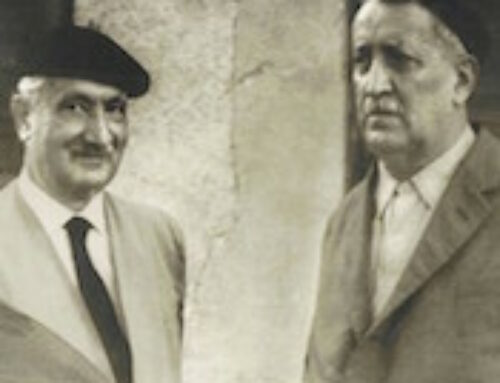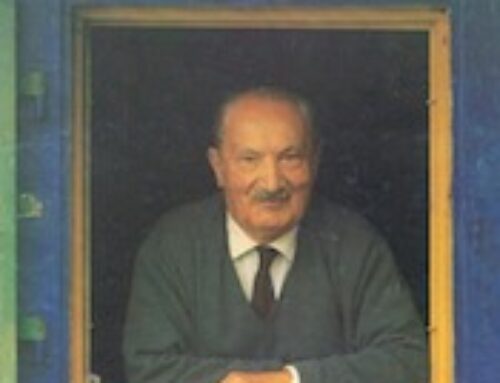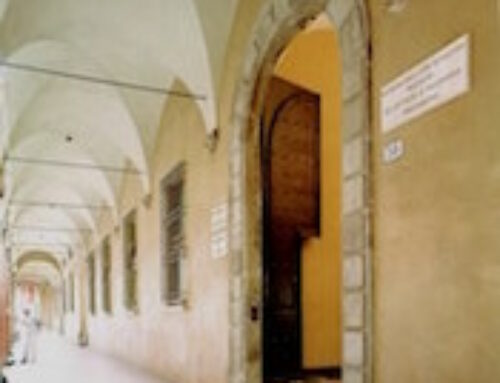Dal 26 Aprile al 1 Maggio 2006 il prof. Ohashi Ryosuke, dell’università di Osaka, ha tenuto a Bologna un seminario sulla Scuola di Kyoto.
From April 26th to May 1st 2006, Prof. Ohashi Ryosuke, from Osaka University conducted an in-depth one week seminar about Kyoto philosophic school.
Programma del seminario del prof. Ohashi
Nei giorni feriali il seminario avrà orari serali, dalle 19 alle 22, negli altri giorni sono previste una sessione mattutina dalle 9 alle 12 e una pomeridiana dalle 15 alle 18.
26 Aprile sera, dalle 19 alle 22:
Introduzione alla Scuola filosofica di Kyoto
27 Aprile sera, dalle 19 alle 22:
Esperienza pura nella filosofia di K. Nishida
28 Aprile sera, dalle 19 alle 22:
Zen e Filosofia – Introduzione
29 Aprile mattina, dalle 9 alle 12:
La logica di H. Tanabe sul Nulla assoluto
29 Aprile pomeriggio, dalle 15 alle 18:
La filosofia di S. Hisamatsu sul Nirvana
30 Aprile mattina dalle 9 alle 12:
Filosofia Zen di K.Nishitani
30 Aprile pomeriggio dalle 15 alle 18:
Interpretazione dei poemi Zen di K. Nishitani
01 Maggio mattino dalle 9 alle 12:
Il Vento come un concetto di cultura in Giappone
01 Maggio pomeriggio dalle 15 alle 18:
Il seguito della filosofia della Scuola di Kyoto
Biography
Ryosuke Ohashi (born 1944) holds a Ph.D. in Philosophy from the Ludwig-Maximilians University München. He received his Phil. Habil (Habilitation) from Würzburg University 1983 – as the first Japanese in Philosophy -. He was awarded in
1990: the “Franz-Phillip-von-Siebold Preis” – the price is given every year for one Japanese scholar from all schientific fields – from the German President C.F. v. Weizsäcker;
1996: the”Humboldt-Medaille” from the President of Alexander von Humboldt-Stiftung.
1997. 10. 1. till 1998. 7. 31.: Fellow of the Wissenschaftskollegs Berlin (Institut for Advanced Study Berlin)
He is Professor for Philosophy and Aesthetics at the Design Department of the Technical University, Kyoto/ Japan.
His publications except works in Japanese include: Ekstase und Gelassenheit. Zu Schelling und Heidegger (München, 1975), Die Zeitlichkeitsanalyse der Hegelschen Logik (Freiburg i. Br., 1984), Die Philosophie der Kyoto-Schule (Freiburg i. Br., 1990), Kire – Das “Schöne” in Japan (Köln, 1994), Japan im interkulturellen Dialog (München, 1999). He has published ca. 30 articles and book chapters in Germany, France, etc. His special fields are: Phenomenology, Aesthetics, German Idealism, Heidegger, the Japanese Philosophy orientated by Buddhism.
The Kyoto School
The Kyoto School, whose members were professors of Philosophy at the University of Kyoto, is the first world-impacting philosophycal school in Japan.
The first Japanese original thinker and founder of this school was Kitaro Nishida; the reason why he tried a personal philosophical pathway rooted in his ten years of meditation practice with a Zen master, who gave him the koan “Mu” (translated with the word “nothing”). Nishida practised very seriously and in 1903 he obtained the certificate of kensho.
Nishida considered the Zen practice as a fundamental element for his subsequent philosophical studies: he realized that Philosophy cannot be a merely speculative activity, but it must root in what he called “pure experience”, or “immediate experience”. If the western philosophical ideas have to find a correlative in the experience of Japanese traditionon the other hand the experience of Buddhist meditation has to ripen and to express itself by using the rigorous instruments of the philosophical thought.
Nishida never left Japan while the other members of the school, like Tanabe – who studied in Germany with Husserl, Cohen and Natorp –, or Nishitani.
Kenji Nishitani, who was a student of Nishida and Tanabe, is also a great member of the Kyoto School; he thoroughly studied Nietzsche, Christianity, as well as Zen, Rinzai and Soto Buddhism.
In spite of the important role played by this school and its influence even in the daily philosophical forum, these thinkers never established a direct contact with contemporary philosophers abroad; because of the relative isolation of the Kyoto’s philosophers and the lack of a real criticism from their foreign contemporaries, their thought could be free to take new directions. Moreover, the great difference between the Japanese language and the Greek and Latin roots of the European languages imposes a reexamination of the speech and the constitution of a basic vocabulary that allowed receiving completely new and unknown concepts.
Professor Ryosuke Ohashi seminar program
26.4 evening from 7 pm to 10 pm
Introduction to the Kyoto-School
27.4 evening from 7 pm to 10 pm:
Pure Experience in K. Nishida’s Philosophy
28.4 evening from 7 pm to 10 pm:
Zen and Philosophy – Introduction
29.4 morning from 9 pm to 12 pm:
H. Tanabe’s Logic of Absolute Nothingness
29.4 afternoon from 15 pm to 18 pm:
S. Hisamatsu’s Philosophy of Nirwana
30.4 morning from 9 pm to 12 pm:
K.Nishitani’s Zen-Philosophy
30.4 afternoon from 15 pm to 18 pm:
K. Nishitan’s Zen-poem Interpretation
01.5 morning from 9 pm to 12 pm:
The Wind as a Concept of Culture in Japan
01.5 afternoon from 15 pm to 18 pm:
Succeeding the Philosophy of Kyoto-School



